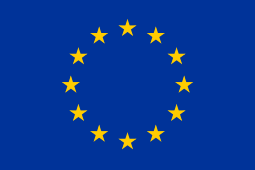During the third year of the Russian invasion of Ukraine, the European Union imported more fossil fuels from Russia than the financial aid it sent to Ukraine last year, the Centre for Research on Energy and Clean Air (CREA), a Finland-based research group said on Monday, on the third anniversary of the war.
EU imports of fossil fuels from Russia – oil, natural gas, and coal – remained broadly unchanged despite the many Western sanctions on Moscow, CREA said.
Russian natural gas isn’t sanctioned, and neither is the oil flow via pipeline to landlocked EU member states in central Europe.
Total EU imports of Russian fossil fuels hit $23 billion (21.9 billion euros) in the third year of the invasion of Ukraine. This was a 6% decline in value, due to lower commodity prices, but just a 1% drop in volumes compared to a year earlier, according to CREA’s research.
Notably, EU imports of Russian fossil fuels in the third year of the invasion surpassed the $19.6 billion (18.7 billion euros) of financial aid the EU member states sent to Ukraine in 2024, the research organization said.
Total global revenues from fossil fuels for Russia hit $254 billion (242 billion euros) in the third year of the invasion of Ukraine. Since February 24, 2022, Russia’s global earnings from fossil fuels have totaled $890 billion (847 billion euros), per CREA’s analysis.
The findings show that Russia has successfully pivoted to its new major oil markets, China and India. These two major buyers plus Turkey accounted for 74% of Russia’s total revenues from fossil fuels in the third year of the invasion.
However, the latest U.S. sanctions on Russia’s oil trade, the most aggressive sanctions yet imposed in the last days of the Biden Administration, have upended global oil trade in recent weeks as Asia rushes to cover Russian barrels with alternative supply and tanker rates soar amid significantly decreased availability of non-sanctioned vessels.
CREA’s analysis finds that tighter sanctions could slash the revenues for the Kremlin by 20% annually.
By Tsvetana Paraskova for Oilprice.com

